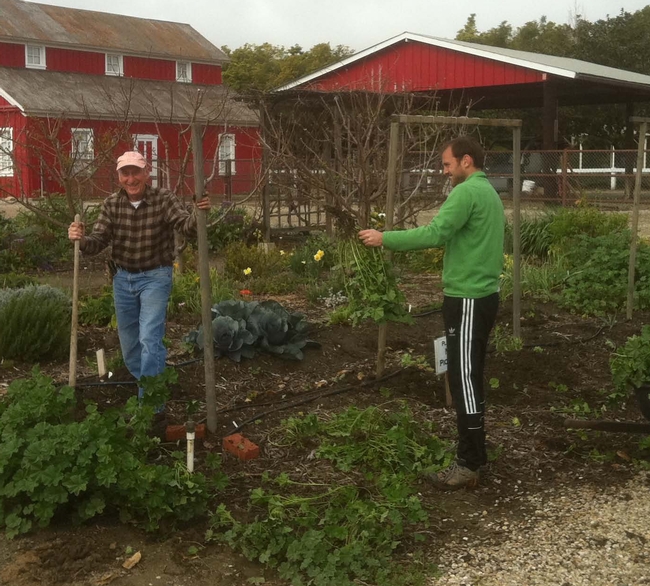Jan 17, 2012
The 2011 UC Master Gardener Vegetable Demonstration Garden Project has recently finished. A group of certified Master Gardeners and trainees spent time each week from January 27 through December 15 learning vegetable gardening techniques through hands-on experience.
They documented their project so that they could impart lessons learned throughout the2011 project. This article is the fourth in a series to share this knowledge.
Garden planting:
Gardens can be planted directly with seeds or seedling transplants.
- In general, you should transplant all vegetable seedings at the same depth at which they originally grew in their planting mix. However, tomatoes and peppers can be planted up to their first true leaves. Adventitious roots (link to definition) growing along the stems on these vegetables will create stronger plants.
- Seedlings need to be hardened before transplanting them to the garden.
- Corn has a better chance of survival if seeded directly into the ground.
- Grow lettuce during cool seasons to avoid bolting (link to definition).
- If you transplant seedlings that have been exposed to low levels of light to full sun without a transition period, the plants may drop all their leaves. This stress could kill the seedlings. Gradually expose the seedlings to full sunlight. This may take a week or two.
- Cucumbers, melons, and squash are especially difficult to transplant. The root system is very fragile and can be damaged if the surrounding soil falls away during transplanting. These seeds may be better handled by planting them directly into the soil where the plants will reside.
- When rooting tomato cuttings, perform the rooting procedure quickly so that the cutting does not wilt. Wilting stresses the plant, making it more difficult to survive.
- Avoid seeding an area too heavily, otherwise plants will be stunted and provide a poor yield. Thin seedlings if necessary.
- Avoid keeping plants in six-packs too long. They will become stressed and may not do well after transplanting (e.g., stunted, poorly-developed plants).
- Watermelon and cantaloupe plants should be planted early in the season to increase probability of fruit.
Questions on gardening? Please contact our Master Gardener helpline at 645-1455 or contact them by email at mgventura@ucdavis.edu.

Gardens can be planted directly with seeds or with seedling transplants.
Topics: